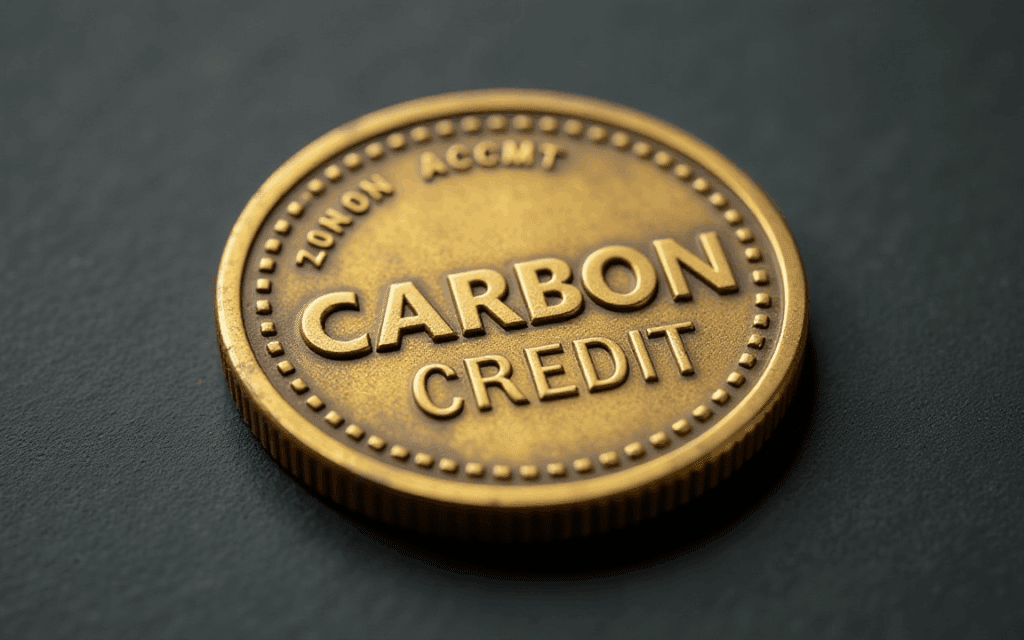JPMorgan Chase & Co. is poised to transform the voluntary carbon market. The bank is currently testing a blockchain-based system designed to tokenize carbon credits, collaborating with S&P Global, EcoRegistry, and the International Carbon Registry. This initiative aims to enhance transparency and efficiency in a market that has faced challenges of fragmentation and credibility.
Advancements in Carbon Credit Tokenization
Led by Kinexys, JPMorgan’s blockchain unit, the project seeks to ascertain whether blockchain technology can efficiently track the ownership and lifecycle of carbon credits—from issuance to retirement. Tokenization, which involves converting real-world assets into digital tokens on a blockchain, is gaining traction on Wall Street. Notable institutions like BlackRock and Deutsche Bank are exploring its potential to streamline and expedite transactions involving traditional financial assets such as stocks and bonds.
By applying this technology to carbon credits, JPMorgan and its partners aim to address ongoing challenges in the carbon market, including inefficiency, opacity, market fragmentation, and the absence of standardized systems. According to the bank, a unified tokenized ecosystem could facilitate the seamless exchange of carbon credits between buyers and sellers, thereby improving the overall market functionality.
Addressing Market Concerns
Alastair Northway, the head of natural resources advisory at JPMorgan Payments, believes the voluntary carbon market is “ripe for innovation.” He emphasized that blockchain tokenization could support a more transparent and interoperable global system, enhancing liquidity and trust in the market. Increased visibility into pricing and project data is one of the potential benefits of adopting digital infrastructure.
A carbon credit typically represents one metric ton of carbon dioxide that has either been removed or prevented from entering the atmosphere. These credits often originate from renewable energy or forestry projects. In a tokenized system, each credit would exist as a digital asset on the blockchain, providing a verifiable and tradable representation of environmental benefits.
However, despite the growing interest from institutions and governments in trading carbon emission rights, the market has been marred by credibility issues. Allegations of greenwashing and gaps in project efficiency have raised doubts about the integrity of some carbon offset programs. JPMorgan has previously financed carbon projects and purchased carbon removal credits, and aims to establish itself as the “bank of choice” for carbon transactions.
Learning from Past Mistakes
A recent report from JPMorgan cautioned that while carbon credits are “on the verge of maturity as market infrastructure strengthens,” this outcome is not guaranteed. The bank warned that failure to address integrity issues or foster innovation could further undermine confidence in a market that has recently stagnated following a contraction period.
The report also mentioned prior attempts by other organizations to tokenize carbon credits, some of which have raised concerns about double counting and transactions involving credits that have already been retired. Such missteps have eroded trust and highlighted the need for more robust frameworks to support digital carbon markets.
Through this new trial, JPMorgan and its partners aim to avoid these pitfalls by collaborating with established registry systems and prioritizing accountability and traceability.

Meet William, a proud Bethel University alumnus with a fervent passion for lifestyle and culture topics. His keen interest doesn’t stop there; he’s also deeply engrossed in current events of all kinds. William dedicates himself wholeheartedly to this site, thriving on the collaborative energy he shares with Suzanne, his long-standing partner in crime.
Having navigated their university courses side by side for years, their teamwork on the site is nothing short of dynamic. Together, they bring a unique blend of insights, proving that two heads are indeed better than one in delivering compelling content.













